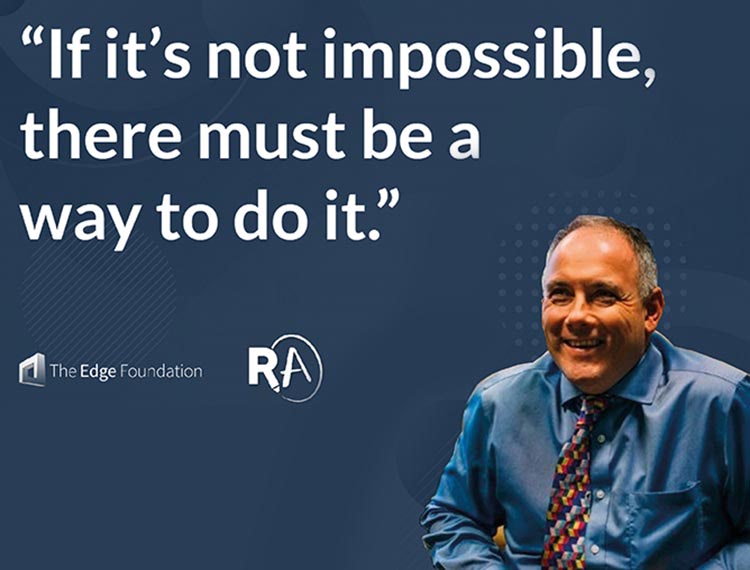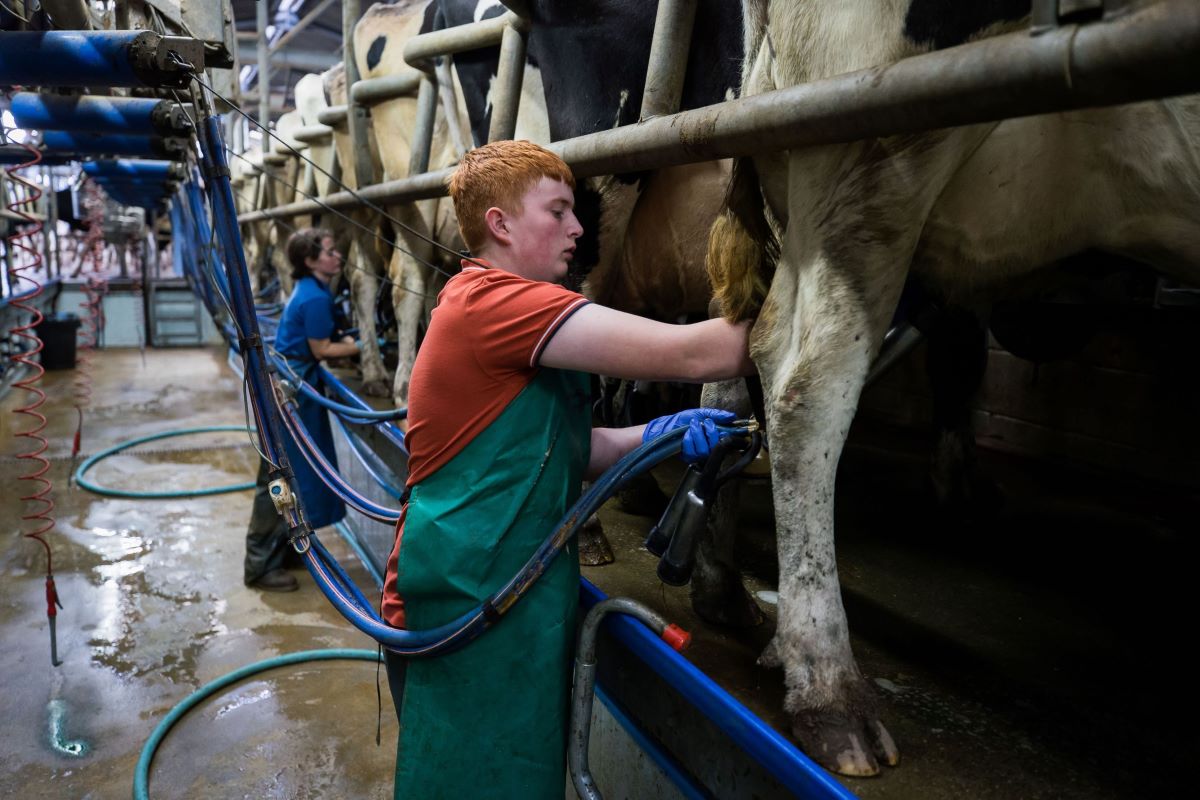Rethinking Assessment: Education system not fit for the 21st century

A coalition of MPs, educationalists, entrepreneurs and teachers’ leaders has called for a Royal Commission on education to sweep away the “factory model” of teaching and learning currently taking place in schools.
The group, led by Robert Halfon, chair of the all-party Commons education select committee and David Davis MP, and includes EDUCATE Ventures’ director Professor Rose Luckin, has written to the government urging a “radical re-engineering of the classroom” with “the effective use of technology, including AI”.
The overhaul would include the scrapping of GCSEs in favour of a “broad baccalaureate, incorporating academic and vocational education at age 18”.
In an open letter entitled Education system not fit for purpose, and published in the Sunday Times on January 11, the campaigners said the education system needed to nurture “talent and create opportunities for everyone”.
The letter states:
ONE of the biggest challenges facing our nation is the creation of an education system that nurtures talent and creates opportunity for everyone.
However, debate about reform often focuses on two opposites — knowledge and skills.
This is a false divide. Knowledge is only relevant alongside the skills to interpret it; skills are only useful when there is knowledge to draw on.
Our current system is not fit for the 21st century.
Social mobility continues to decline, and even before the pandemic we faced significant skills gaps: by 2024, there will be an estimated shortfall of four million skilled workers. Now Covid-19 has wreaked further damage, with millions of children missing lessons.
Too much technology in schools has been out of date for 10 years. Worse still, teachers are not sufficiently incentivised to integrate it into their practice. The UK is 31% behind the Organisation for Economic Co-operation and Development average in this respect.
Urgent change is essential. This starts with the scrapping of GCSEs. In their place we need a broad baccalaureate, incorporating academic and vocational education at age 18.
Second, the factory model — where each pupil advances at the same pace in every subject, regardless of ability and interest — must be swept away for ever. Instead, we should enable personalised education through the use of new technology.
Third, we need a radical re- engineering of the classroom. The effective use of technology, including AI, can provide seamless learning between school and home.
Clearly, the growth of AI and robotics will have a profound impact. So, fourth, we need a special royal commission on education, AI and exam reform that would include experts and report within nine months. It is essential we understand and prepare the nation for the impending changes in our economy and society.
Robert Halfon MP; David Davis MP; Sir Anthony Seldon; Priya Lakhani; Professor Rose Luckin; Geoff Barton, general secretary, Association of School and College Leaders; Damian Green MP; Flick Drummond MP; Mark Pawsey MP; Christian Wakeford MP; Lord Baker; Lord Puttnam; Lord Knight; Lord Clement-Jones; Professor Julia Buckingham, vice-chancellor and president, Brunel University London; Professor Mary Stuart, vice-chancellor, University of Lincoln; Professor Steven West, vice-chancellor and president, University of the West of England Bristol; Professor Sir Anton Muscatelli, economist and principal, University of Glasgow; Sir Michael Barber, educationalist; Dr Eric Addae-Kyeremeh, head of School of Innovation, Open University; Sherry Coutu, chairwoman, The Scale Up Institute, entrepreneur, investor; Timno Hannay, managing director, School Dash Limited; Bob Harrison, chairman of governors, the Northern College; Tom Hooper, founder, Third Space Learning; Nick Kind, senior director, Tyton Partners; Luke Johnson, entrepreneur; Margaret McCabe, chief executive, DebateMate; Alistair McConville, director of learning and innovation, Bedales School; Deirdre Medler, director of initial teacher education, University of East Anglia; Professor Simon Thompson, head of education, University of Sussex; Professor Chris Wilkins, head of school of education, University of Leicester
Guidance for schools and colleges on who should enter students for exams, the health arrangements for exams and the support DfE is providing.
Responsibility for exams – Documents
School and college responsibility for exams from January 2021
HTML
DfE exam support service: autumn exam fees, sites and invigilators
HTML
Public health guidance to support exams from January 2021
HTML
Details
This guidance is for:
- school and college senior leaders, heads of exam centres
- teachers, exams officers and other staff involved in exam delivery
- local authorities and multi-academy trusts (MATs)
It sets out your responsibility for running exams.
‘School and college responsibility for exams from January 2021’ explains your responsibility for entering students in to the exams and how the cost of fees will be covered.
‘DfE exam support service: autumn exam fees, sites and invigilators’ explains how you can use the service to book alternative sites, DBS-checked staff for invigilation and cover essential additional costs, where applicable.
‘Public health arrangements for exams from January 2021’ explains the key public health arrangements for exams to enable you to deliver exams in a coronavirus (COVID-19) secure way. This includes wearing of face coverings in exams, set up of the exam room, cleaning and arrival and departure of candidates.
If you are a student, you should contact your school or college to discuss entering exams.
Published 22 May 2020
Last updated 12 January 2021 + show all updates
-
Updated the public health guidance to support exams from January 2021 to reflect that schools and colleges can continue with vocational and technical exams, where they judge it right to do so. This includes updates to the sections on the set up of the exam room, face coverings, maintaining distance between staff and candidates and where a candidate has a negative test.
-
Updated public health guidance and school and college responsibility guidance for exams from January 2021 onwards.
-
Added information about the support available for functional skills qualifications (FSQs).
-
Updated information on public health arrangements for autumn exams to include information on autumn exam contingencies, candidate health and reasonable adjustments.
-
Added ‘Public health arrangements for autumn exams’.
-
Updated responsibilities guidance with information about entering students for maths and English language GCSE and links to wider guidance for conducting exams. Added DfE exam support service guidance about paying for exam fees, booking alternative sites and booking exam invigilation.
-
Updated key points and background sections.
-
Updated guidance setting out the support that DfE is providing for autumn exams through the DfE Exam Support Service.
-
First published.











Responses